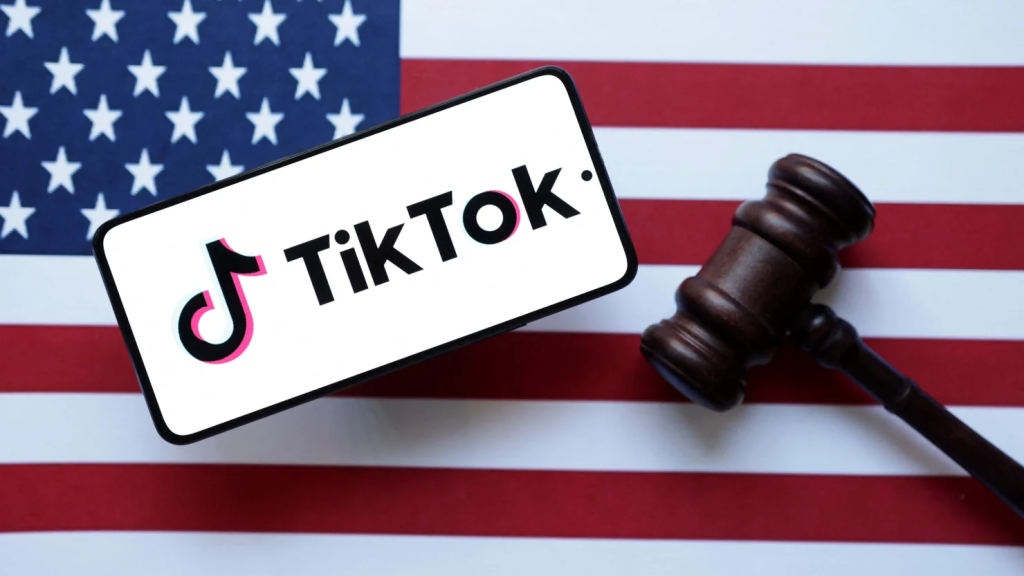As TikTok faces potential removal from U.S. app stores and restricted service starting Sunday, many Americans are exploring options to continue accessing the platform. One widely discussed solution is the use of Virtual Private Networks (VPNs), which can bypass regional restrictions by masking a user’s location.

Why TikTok Is Going Dark in the U.S.
The ban stems from a law signed by President Joe Biden in April 2024, requiring TikTok’s Chinese parent company, ByteDance, to sell the app to a qualified buyer by a specific deadline. With no sale or Supreme Court intervention in sight, TikTok is set to disappear from app stores like Apple’s App Store and Google Play on Sunday.
While existing users won’t immediately lose the app on their phones, TikTok reportedly plans to disable its services in the U.S., leaving millions of Americans unable to use the platform.
>>>IC698ACC701 Replacement Battery for Fanuc 44A747665001R03
How VPNs Could Provide a Workaround
VPNs are tools that allow users to bypass geographical restrictions by routing their internet connection through servers in other countries. By doing this, a VPN masks the user’s IP address—the unique identifier that reveals the region from which they’re accessing the internet.
For example, someone in the U.S. could use a VPN to make it appear as though they’re accessing TikTok from Canada or Europe, where the app would remain operational.
How VPNs Work:
- Tunneling Internet Traffic: VPNs encrypt a user’s data and send it through a server in a different location.
- Masking IP Addresses: Each internet connection is tied to an IP address, which contains regional data. VPNs assign users an IP address tied to the server’s location, obscuring their real geographic origin.
- Bypassing Restrictions: With an altered location, apps and websites may assume the user is accessing from an unrestricted region.
The Rise of VPN Use for Restricted Content
In regions with strict internet regulations, VPNs have emerged as an essential tool for maintaining online access. They provide a reliable workaround for users facing limitations on certain platforms or content. For example:
- In China, VPNs are widely used to bypass the Great Firewall, enabling access to sites like Google and Facebook.
- After India’s 2020 TikTok ban, VPN usage spiked as people sought ways to reconnect with the app.
- VPNs are also popular for accessing region-specific content, such as exclusive sporting events or unavailable streaming services.
The growing reliance on VPNs underscores their importance in an increasingly fragmented internet landscape. As of 2022, the global VPN market was valued at $38 billion, according to the VPN Trust Initiative.
>>> 15N-600AA Replacement Battery for GE Responder 1000 1100 92916531
Challenges with Using VPNs for TikTok
While VPNs have successfully bypassed restrictions in the past, they may not guarantee continued access to TikTok if the app goes dark in the U.S. Some potential challenges include:
- TikTok’s Ability to Detect VPNs: TikTok may employ advanced detection methods to identify and block users attempting to access its services through VPNs.
- Legal Implications: Using VPNs to circumvent regional restrictions could violate TikTok’s terms of service or local laws, though enforcement on individual users is rare.
- Service Stability: Even with a VPN, app performance might be inconsistent, particularly if TikTok adjusts its backend systems to block foreign IP addresses associated with known VPN providers.
Governments around the world have increasingly targeted apps for removal, citing reasons such as national security, data privacy, and economic development. Apple reports that nearly 1,500 apps were removed globally in 2023 due to government takedown requests, with most of these removals occurring in China.
While many bans target fringe apps or services violating local laws, TikTok’s removal would mark a significant escalation, given its popularity. With 115 million U.S. users, TikTok was the second most downloaded app of 2024, according to Sensor Tower.